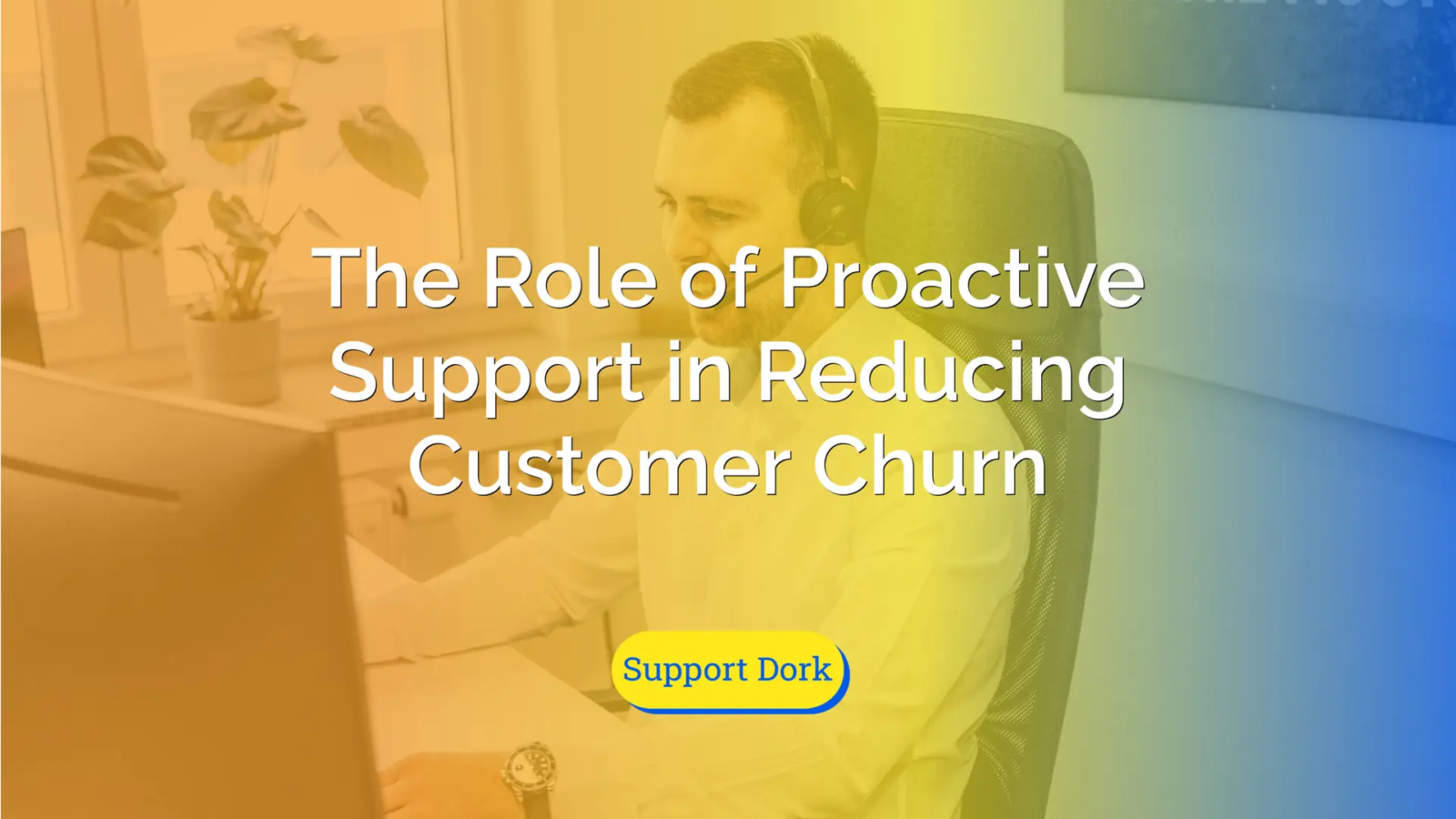In today’s competitive landscape, retaining customers is just as important as acquiring new ones. For many businesses, particularly those in subscription-based models or SaaS, customer churn can significantly impact revenue and growth. One effective strategy to combat this issue is proactive support. By anticipating customer needs and addressing potential problems before they escalate, businesses can enhance customer satisfaction and loyalty, ultimately reducing churn rates. Here’s a closer look at the role of proactive support in minimizing customer churn.
Understanding Customer Behavior and Needs
Proactive support is one of the top 5 trends that will impact customer support in 2025 and beyond. It starts with a deep understanding of customer behavior and needs. By analyzing usage patterns, feedback, and historical data, businesses can gain insights into how customers interact with their products or services. This information allows companies to identify potential pain points and anticipate when customers may encounter issues.
By leveraging data analytics and customer insights, businesses can develop tailored strategies to address specific concerns before they become major problems. This proactive approach not only improves customer satisfaction but also shows customers that the company values their experience and is invested in their success.
Proactive Customer Support Identifies At-Risk Customers Early
One of the key components of proactive support is the ability to identify at-risk customers early. Businesses can utilize data-driven methods to pinpoint customers who may be experiencing dissatisfaction or disengagement. For example, if a customer suddenly reduces usage of a product or frequently encounters issues, it may signal that they are considering canceling their subscription.
By recognizing these warning signs, businesses can reach out to these customers with targeted support, offering assistance or solutions to improve their experience. Early intervention can significantly reduce churn rates by addressing concerns before customers decide to leave. Proactive support enables businesses to stay ahead of potential issues, fostering stronger relationships with customers.
Proactive Customer Support Builds Stronger Customer Relationships
Proactive support fosters stronger relationships between businesses and their customers. When companies actively reach out to customers, providing assistance and resources, it demonstrates a commitment to their success. This open line of communication helps build trust and rapport, making customers feel valued and understood.
By engaging with customers regularly, businesses can gain valuable feedback that informs product improvements and enhances the overall customer experience. This relationship-driven approach can lead to increased loyalty and retention, as customers are more likely to stay with a company that consistently prioritizes their needs and concerns.
Providing Timely Solutions and Resources
Proactive support empowers businesses to provide timely solutions and resources that enhance the customer experience. By anticipating common issues and preparing helpful materials such as tutorials, FAQs, and best practices, companies can equip customers with the knowledge they need to navigate challenges independently.
When customers feel empowered to resolve issues on their own, it can significantly reduce frustration and improve satisfaction. Additionally, timely outreach to offer solutions – whether through emails, live chat, phone calls, or direct conversations – can demonstrate that the business is attentive to customer needs. This proactive approach minimizes the likelihood of customers encountering unresolved issues that could lead to churn.
Proactive Customer Support Encourages Customer Engagement and Loyalty
Proactive support encourages ongoing customer engagement, which is essential for reducing churn. When customers receive regular check-ins and support, they are more likely to feel connected to the brand and its offerings. This engagement can lead to increased usage of products or services and deeper loyalty.
By actively involving customers in the support process and providing opportunities for feedback, businesses can create a collaborative environment that fosters loyalty. Customers who feel engaged and valued are less likely to seek alternatives, leading to lower churn rates and increased lifetime value.
Conclusion
Proactive support is a powerful strategy for reducing customer churn and enhancing overall satisfaction. By understanding customer behavior, identifying at-risk customers, building strong relationships, providing timely solutions, and encouraging engagement, businesses can create a positive customer experience that fosters loyalty. As competition intensifies, investing in proactive support will be essential for companies aiming to retain customers and drive long-term growth. Contact Support Dork today to learn how our agents are trained to offer proactive customer support for your growing business.


[…] Proactive customer support is becoming a critical trend as businesses recognize the value of anticipating customer needs before issues arise. Instead of waiting for customers to reach out with problems, companies will implement strategies to identify potential challenges and provide solutions proactively. This approach can involve monitoring customer behavior, analyzing usage patterns, and reaching out with helpful resources or tips. […]